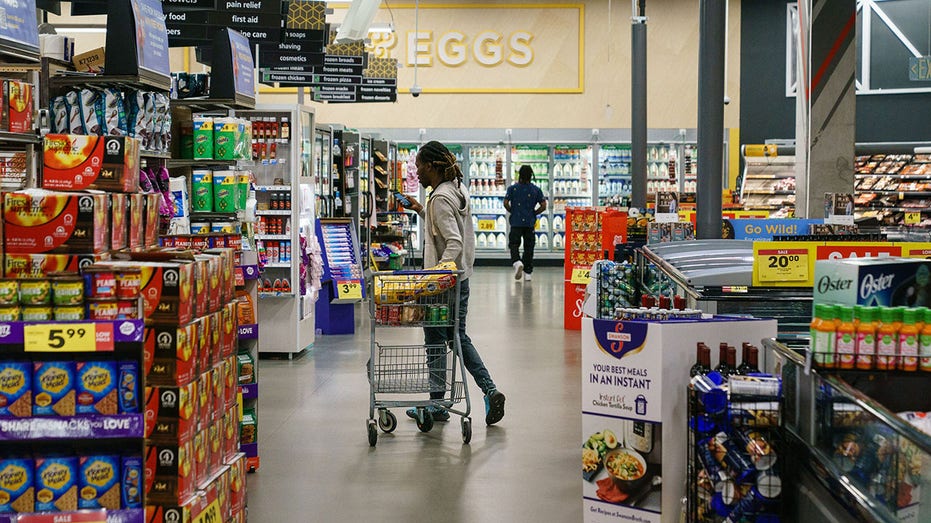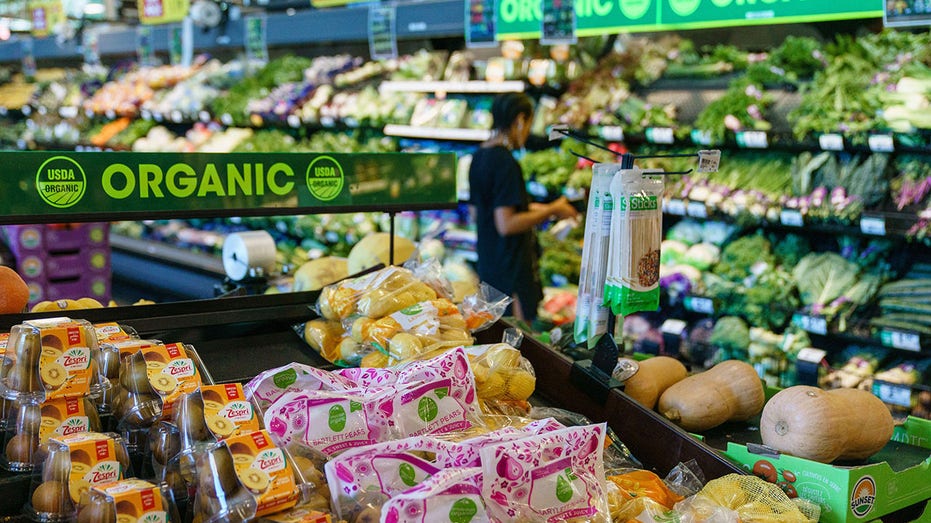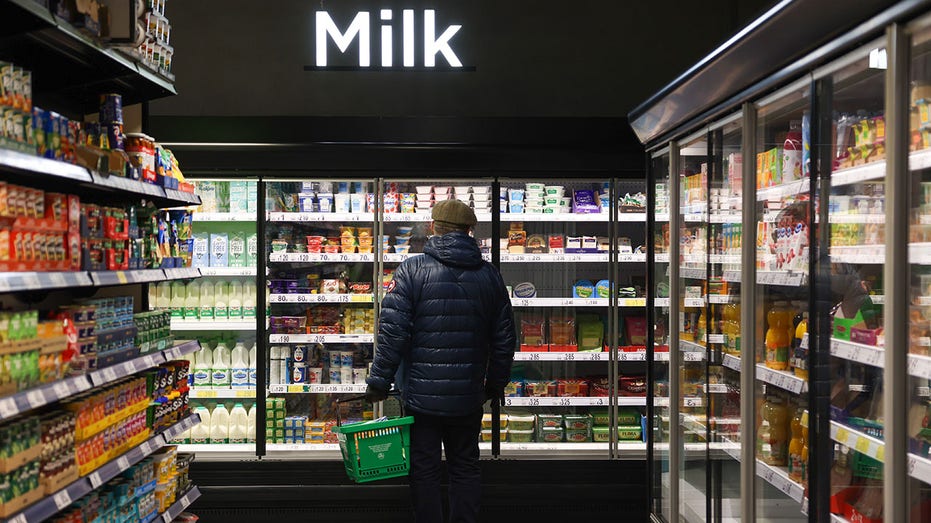Are higher food costs changing our eating habits?
A recent survey showed nearly 70% of shoppers are struggling to pay grocery bills
Scott Shellady offers dismal message after food prices rise again: 'I don't see any break for the consumer'
RFD-TV's 'The Cow Guy' Scott Shellady assesses the market rally and breaks down Russia's Black Sea grain exports deal.
Rising food prices are forcing shoppers to make trade-offs at the grocery store.
Although overall inflation eased a bit in November, the cost of food still rose 0.5% from October to November and jumped 10.6% compared to a year ago, according to government data. Groceries, which also rose 0.5% month-over-month, are up 12% compared with a year ago. Some food staples such as eggs surged as high as 49.1%, according to the Consumer Price Index (CPI).
Swiftly's True Cost of a Grocery Shop survey indicated that nearly 70% of shoppers are struggling to pay for their groceries after months of persistent inflation.
Wesley McWhorter, spokesperson for the Academy of Nutrition and Dietetics, told FOX Business that in times of inflation, consumers tend to seek cheaper alternatives in order to save money and time in the kitchen.
However, in some cases, trading down isn't an option for individuals battling certain health conditions.

Shoppers are seen in a Kroger supermarket on October 14, 2022, in Atlanta, Georgia. (Elijah Nouvelage/AFP via Getty Images / Getty Images)
For Kelsey Rizzo, a Portland, Oregon, resident who was diagnosed with an inflammatory bowel disease called ulcerative colitis in 2020, it could lead to health complications.
Rizzo has to follow a very strict diet which includes avoiding things such as raw veggies, excessive sugar, fake sugars, fried or greasy foods, carbonated drinks, alcohol, nuts, seeds, caffeine and spicy foods. She also has to avoid all dairy products.
NEARLY 70% OF AMERICANS STRUGGLING TO PAY GROCERY BILLS, SURVEY FINDS
If not, she can suffer from flare-ups which can include a range of symptoms from diarrhea, abdominal pain and cramping, rectal pain and bleeding, fatigue, and urgent bowel movements, according to the Mayo Clinic.
"You're literally looking for products with five ingredients or less if you can," Rizzo said.
Most times, that means going to a farmers market, and that comes with a price, Rizzo added.

Shoppers are seen in a Kroger supermarket on October 14, 2022, in Atlanta, Georgia. (Elijah Nouvelage/AFP via Getty Images / Getty Images)
"The new prices make it very hard to keep it budget friendly," she said, adding that she has been forced to forgo certain items all together.
With some products, Rizzo says she forks over the extra money. In other cases, she will buy alternative products even though her health may suffer.
For instance, if a loaf of gluten-free bread is $10 more than a normal loaf, Rizzo says she won't get it. Instead, she'll buy the gluten-friendly option and suffer the consequences.
INFLATION, STOCK SHORTAGES: HOW CASH-STRAPPED CONSUMERS CAN NAVIGATE GROCERY SHOPPING
"I definitely feel the pain when I don't follow my strict diet, and I know a lot of people probably feel that same way," she added.
While not everyone faces the same health consequences as Rizzo, many have still been forced to change or adjust their food buying habits.

Shopper at an Asda Express convenience store, operated by Asda Group Ltd., in London, UK, on Tuesday, Dec. 13, 2022. (Hollie Adams/Bloomberg via Getty Images / Getty Images)
COSTCO CFO HINTS AT MEMBERSHIP FEE HIKE
Andrew Harig, vice president of tax, trade, sustainability and policy development for FMI, The Food Industry Association, told FOX Business that although consumer spending has shown to be resilient, "it doesn’t mean that American’s haven’t had to adjust how they shop in order to manage their budgets."
"To manage their budgets, [lower-income] shoppers report looking for more deals, purchasing more store brands, or simply buying fewer items," Harig said. "Shoppers are also making changes to their shopping routine, including buying less fresh meat, seafood, and produce.
Meanwhile, Harig has also noticed that "higher-income shoppers may make tradeoffs like not buying organic foods."
Harig has noticed that consumers have been trading out higher margin items such as more expensive cuts of meat since last spring. That trend, according to Harig, has stayed pretty consistent.

Walmart employee at work. (Walmart)
INFLATION MAY HIT SOME RETIREES TWICE
Last month, Walmart, the nation's largest retailer, even told analysts during its third quarter earnings call that its shoppers are trading down to private brands in various categories including baby items and baking goods, the company said.
Not only that by the company is seeing an increase in wealthier shoppers hitting its stores as well.
Nearly three-quarters of Walmart’s market share gains in food came from households with annual incomes of at least $100,000, Walmart Chief Financial Officer John David Rainey told analysts on an earnings call.
| Ticker | Security | Last | Change | Change % |
|---|---|---|---|---|
| WMT | WALMART INC. | 131.18 | +4.24 | +3.34% |
GET FOX BUSINESS ON THE GO BY CLICKING HERE
Inflation is 'not going away' despite being 'lower': Joe Duran
Head of Goldman Sachs Personal Financial Management Joe Duran joins 'Varney & Co.' to discuss the Federal Reserve's handling of inflation and provides his forecast for potential rate hikes.






















